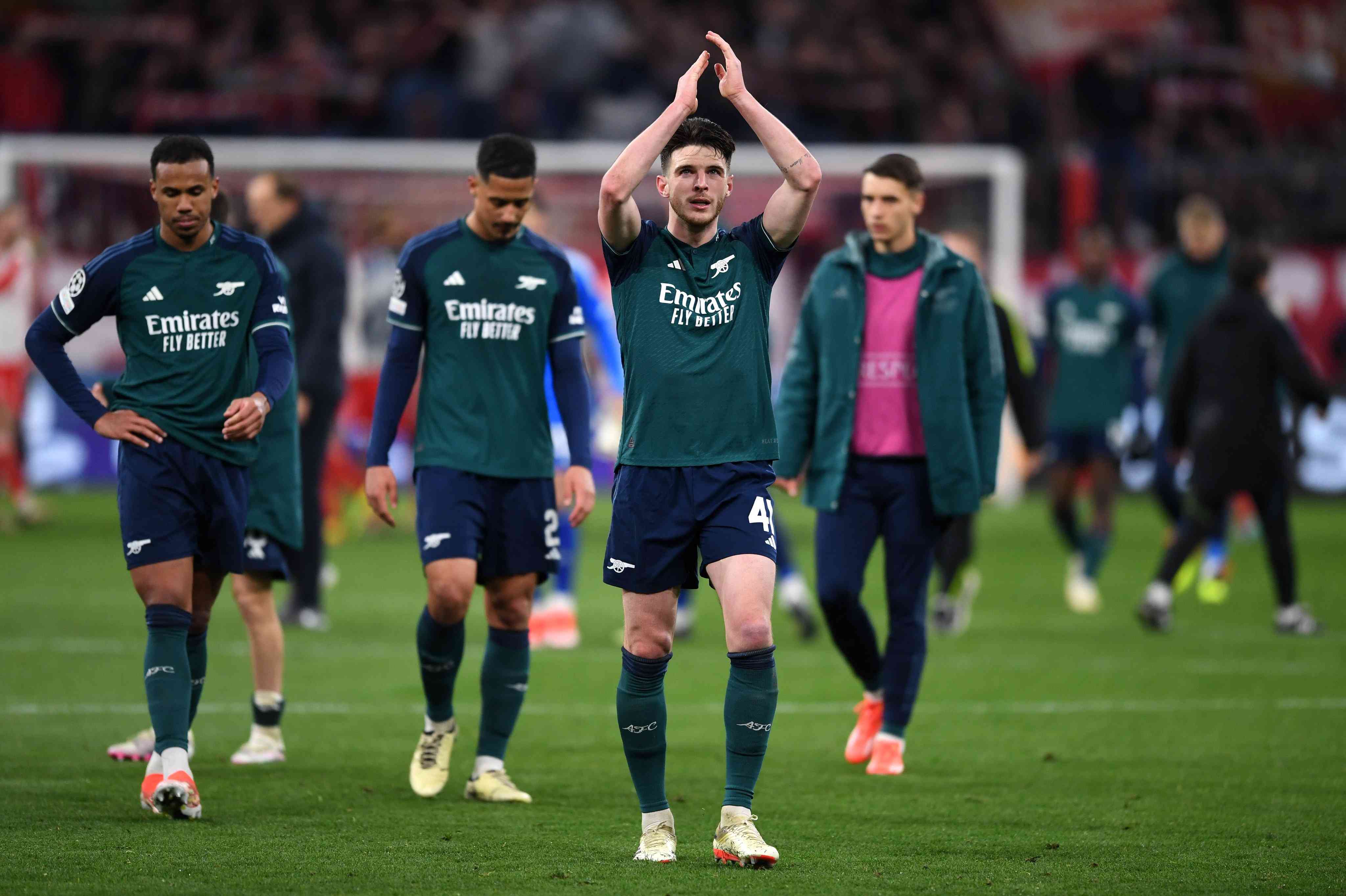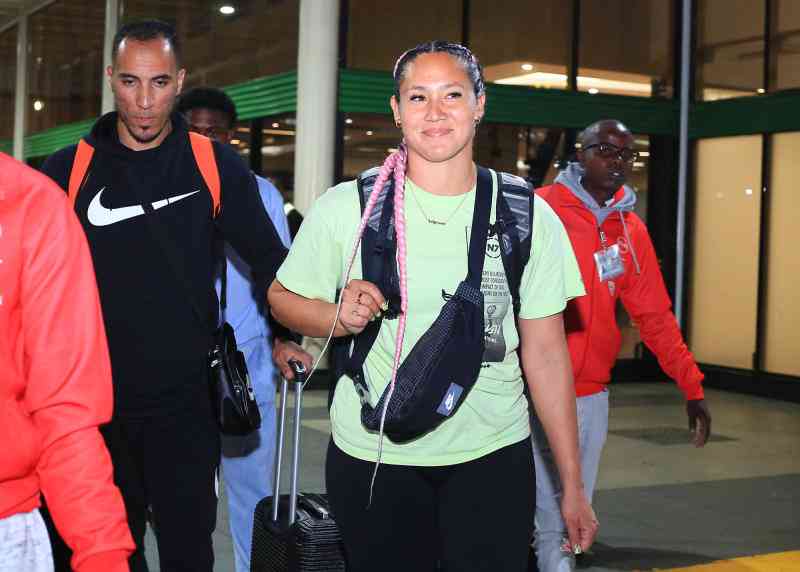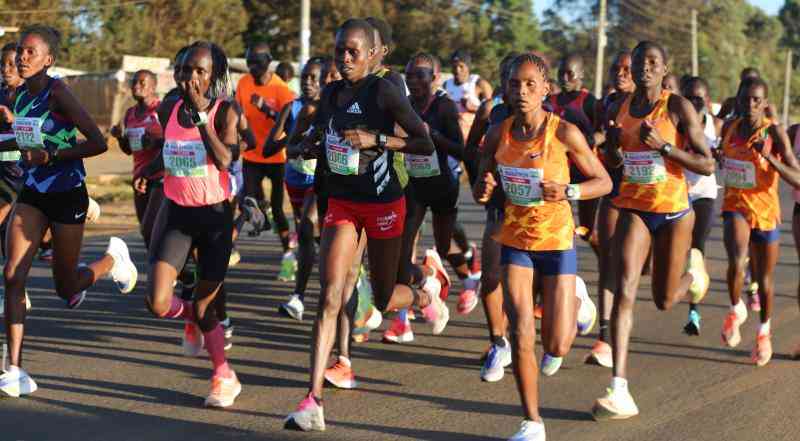Campaigns for this year's General Election, which is now only 10 days away, have been anything but low key and devoid of the sparks that characterised previous contests for power.
While the presidential race has dominated the political space, it cannot be compared to elections held in the country since 1992, when the first poll after the reintroduction of multi-party democracy was staged.
The lack of heightened tensions and violence on the campaign trail so far is a good thing, which potentially portends a peaceful election and post-election period.
Not even the intrigues involving security agencies and the Independent Electoral and Boundaries Commission (IEBC) over the process of procuring election materials have captured the emotions of ordinary Kenyans.
Various factors from the high cost of living, unemployment crisis to the ballooning foreign debt have been cited as the reason not many Kenyans, especially the youth, are investing their energies in high octane politics.
For instance, while Raila Odinga of Azimio and Kenya Kwanza's William Ruto have lined up grand promises covering critical sections of society, more and more Kenyans are becoming aware that funding them will not be easy.
As a result, what Kenyans will remember are the monotonous and unexciting campaigns the two formations have been engaged in over several months. Not even the ethnic mobilisation that was overt in previous elections has prominently featured in this year's election.
Indeed, save for the battle for State House and some governor and senator quests, there has been no visible investment by candidates, even by way of the billboards that has managed to stir some life into the electoral process.
Only in regions such as Gusii, Luo Nyanza, Western, Rift Valley, Mt Kenya and parts of the Coast have witnessed some semblance of high octane campaigns, including as a result of sibling rivalry. It is, however, worth noting that even where competitors have traded political barbs, this was absent this time round, with even the presidential debate organised by the media mostly lacking huge excitement.
In the Deputy Presidential Debate for instance, only the Roots Party running mate Justina Wamae generated some oomph, but only in the manner she articulated some of the wild ideas put forth by presidential candidate Prof George Wajackoyah.
Many are those who expected Azimio running mate Martha Karua to wipe the floor with her Kenya Kwanza rival Rigathi Gachagua, but her performance was largely underwhelming though she has defended herself, stating she was keen not to be boxed into a personality war.
In the past, tension between competitors was evident ahead of and during such debates. In 2013, President Uhuru Kenyatta, for instance, opted to boycott the second part of the presidential debate, arguing that his name had been portrayed in a negative light during the first debate when the issue of his charges at the International Criminal Court dominated the debate.
In 2017, he avoided the debate altogether.
Five years later, it is Raila who opted to stay away, with his campaign spokesman Prof Makau Mutua claiming Ruto had demanded that issues to deal with corruption, integrity, ethics and governance be left out of the debate.
Roots Party's Prof George Wajackojah also opted out.
The National Cohesion and Integration Commission (NCIC) says it is optimistic that the elections will be violence-free, unlike in the past when politicians rode on inter-ethnic tensions and use of gangs to get their way.
While some regions have been fingered as potential hot spots based on their history, the atmosphere around the process is unlikely to be extremely charged.
International Crisis Group Programme Director for Africa Murithi Mutiga says the public has grown indifferent over time as politicians have engaged in dizzying alliances, including the UhuRuto union in 2013 and lately, the Uhuru-Raila handshake.
"The opportunism of the political class seems to have had the unintended effect of lowering the degree of engagement within the public as reflected in the low turnout in voter registration among the youth," Mutiga told The Nairobian.
According to him, it is also not insignificant that this is the first election in the multi-party era in which there is no major Kikuyu presidential candidate, adding that some past elections were basically referendums on Kikuyu elite political and economic dominance, a dynamic absent this time.
"However, while societal tensions are low, elite tensions are extremely high. That means miscalculations by various parties in the course of election management could trigger a violent crisis," warned Mutiga.
Benson Ngunga Milai, who is vying for the Mathare consituency seat on Wiper ticket, says the situation in the area, one of the violence hotspots in the past, has been moderate and expressed hope this continues until after the elections.
"There is an organised team of locals together with the police which is regularly talking to youths about peace. Some churches have also joined in preaching peace to their followers.We are banking on the above measures to maintain peace during the campaign period and after the elections," he said.
"My team and l are also preaching peaceful campaigns as the area is a cosmopolitan constituency with many tribes living there so a slight mistake could easily turn into an ethnic contest which is dangerous," added Milai.
According to him, rather that hold explosive rallies, he has adopted door to door campaigns.
 The Standard Group Plc is a multi-media organization with investments in media
platforms spanning newspaper print operations, television, radio broadcasting,
digital and online services. The Standard Group is recognized as a leading
multi-media house in Kenya with a key influence in matters of national and
international interest.
The Standard Group Plc is a multi-media organization with investments in media
platforms spanning newspaper print operations, television, radio broadcasting,
digital and online services. The Standard Group is recognized as a leading
multi-media house in Kenya with a key influence in matters of national and
international interest.
 The Standard Group Plc is a multi-media organization with investments in media
platforms spanning newspaper print operations, television, radio broadcasting,
digital and online services. The Standard Group is recognized as a leading
multi-media house in Kenya with a key influence in matters of national and
international interest.
The Standard Group Plc is a multi-media organization with investments in media
platforms spanning newspaper print operations, television, radio broadcasting,
digital and online services. The Standard Group is recognized as a leading
multi-media house in Kenya with a key influence in matters of national and
international interest.






